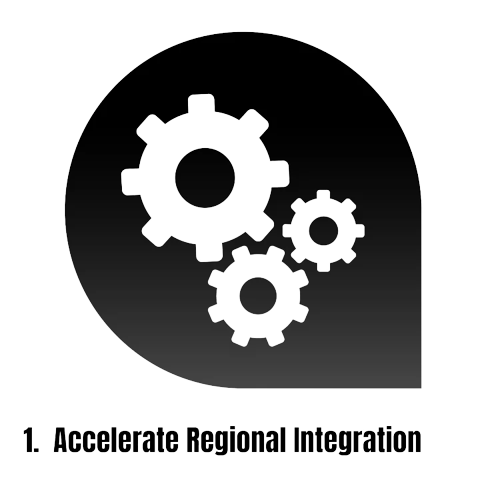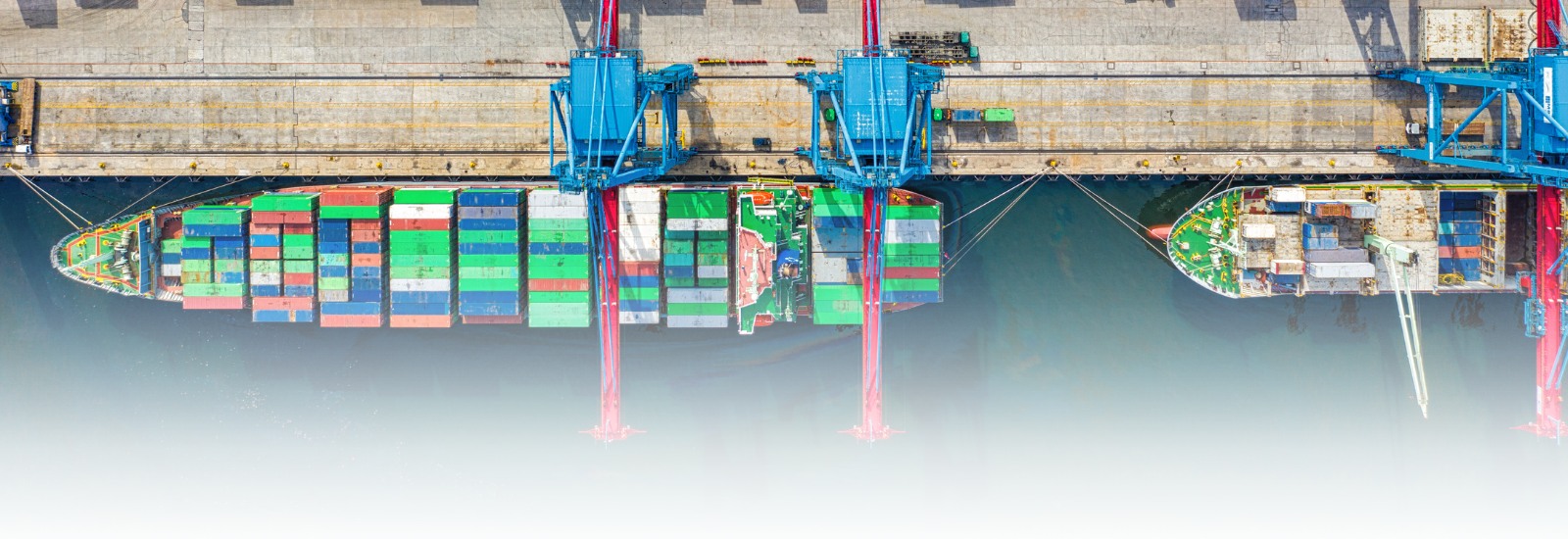OECS Economic Affairs and Regional Integration Division
The OECS Economic Affairs and Regional Integration Division (EARID) focuses on deepening the level of integration among the OECS Member States and the establishment of a common economic purpose through the establishment of the Eastern Caribbean Economic Union.
The work of the Economic Affairs and Regional Integration Division is focused on three functional areas mandated by the Revised Treaty of Basseterre. The first relates to the establishment of the OECS Single Economy among the seven protocol member states. The second core function relates to the coordination of trade policies and the implementation of trade arrangements with third non-OECS states, and the third function relates to the pursuit of shared economic property among all OECS member states.
The vision of the EARID is “Driving Sustainable and Inclusive Economic Development in the OECS”. The mission is to coordinate and support harmonious development policies and cooperation systems among OECS member states that would enhance their international competitiveness nationally and within the Economic Union as a whole. We support our member states to develop their economic potential and consolidate their competitive advantages to create a better quality of life for the people of the OECS.
Objectives
The Economic Affairs and Regional Integration Division’s objectives primarily are based on the first two Strategic Priorities of the OECS.
 To Facilitate the Establishment of a Functional Economic Union.
To Facilitate the Establishment of a Functional Economic Union.

A transformed and Globally Competitive Economy
The objectives of the Economic Affairs and Regional Integration Division which fall under these priorities are:
- To promote free movement within the OECS Economic Union whereby its citizens have common rights and privileges to live and conduct business in all member states.
- To enhance the international competitiveness of OECS companies (especially the micro, small and medium enterprises [MSME]) and support the improvement of the business ecosystem in the OECS to increase economic growth through
- Strengthening OECS business support organisations
- Entrepreneurship development through acceleration and incubation
- Provision of technical assistance and capacity building at enterprise level
- To promote sustainable development by promoting innovation and digitization and the harnessing of growth opportunities in new and emerging sectors.
Units of OECS Economic Affairs And Regional Integration Division
1 - Regional Integration Unit

Regional Integration Unit is focused on supporting member states in establishing the policy, legislation, institutional, infrastructure and administration arrangements that will ensure the OECS citizens and their families can freely travel, work and do business in all member states. The unit principally seeks to achieve this through:
- Promoting common border systems and procedures
- Harmonisation of labour market laws and regulations
- Ensuring consumer protection and uniform competition regulation environment
2 - Economic Development Unit

The Economic Development Unit is driven by the OECS Development Strategy which covers the period 2019-2028 and focuses on three main pillars:
- Generating Economic Growth
- Promoting Human and Social Well-being
- Sustainable Use of Natural Endowments
The OECD Development Centre has supported the OECS member states in setting priorities for the implementation of its strategy, and in building a framework for implementation and monitoring in order to meet the specified goals that the OECS Development Strategy (ODS) sets out to achieve. The Unit is also responsible for the implementation of the OECS Food and Agriculture Systems Strategy (FAST) and for promoting and sustainable tourism policies and programmes within the OECS.
Learn more about Tourism
Learn more about Agriculture
3 - Competitive Business Unit

The Competitive Business Unit is driven to enhance the business support ecosystem within OECS and increase economic competitive and export trade within the OECS and internationally. This drives the unit’s main focus of:
- Promoting private sector development including:
- Increasing access to finance for OECS businesses
- Providing technical assistance and capacity building to OECS firms
- Export development
- Entrepreneurship and innovation
- Harmonising of MSME policies among OECS member states
- Trade and investment facilitation
4 - Trade Policy Unit

The Trade Policy Unit has as its main mandate the coordination and hamonisation of OECS trade policies both within the Economic Union and with non-OECS member states. One of the unit’s principal responsibilities in that regard is the establishment of the Customs Union and its free circulation of goods. This drives the unit’s focus of:
- Creating a common border tax structure for the OECS Customs Union including non-tariff border taxes and charges and developing a Border Tax Revenue Management Mechanism
- Developing integrated border management structure and systems
- Establishing the legal framework for the free circulation of goods
- Promoting hamonised environment for development of service-based enterprises
Leaders of Economic Affairs And Regional Integration Division

Ms. Jacqueline Emmanuel, Director of Economic Affairs & Regional Integration
Mrs. Jacqueline Emmanuel-Flood joined the OECS Commission in 2019. She did a stint as Head of the Competitive Business Unit and Trade Policy Facilitator at the OECS Commission before being appointed Head of Economic Affairs and Regional Integration. Mrs Jacqueline Emmanuel-Flood has more than twenty years of servitude and investment towards the development of the business and trade landscape in Saint Lucia. She is an expert in Development Planning, Project Development, Investment Analysis, Finance and Trade Promotion.
In her former role as Director of the Office of the Private Sector Relations (OPSR), she spearheaded Saint Lucia’s National Export Development Strategy. To add to her exemplary track record of leading roles, Mrs Jacqueline Emmanuel-Flood acted in the capacity of Executive Director for the Saint Lucia Chamber of Commerce, Industry and Agriculture; General Manager at the National Development Corporation; Senior Economist at the Ministry of Planning, Establishment and Training; and part-time Lecturer in Business Administration for the University of the West Indies Distant Learning Programme. Mrs. Jacqueline Emmanuel Flood holds a bachelor’s degree in Economics from the University of the West Indies, Cave Hill Campus, Barbados, and a master’s degree in Project Analysis, Finance and Investment from the University of York, in the United Kingdom.

